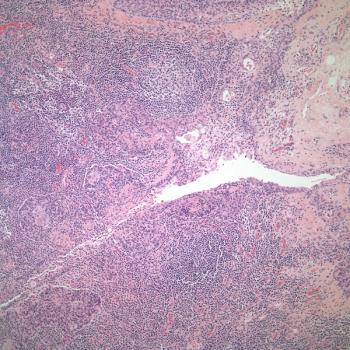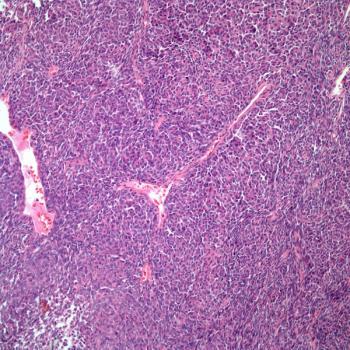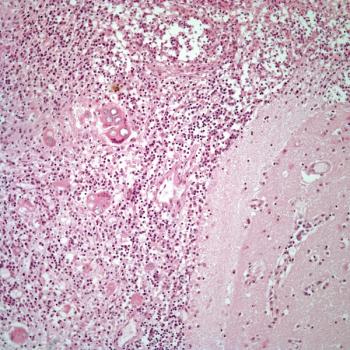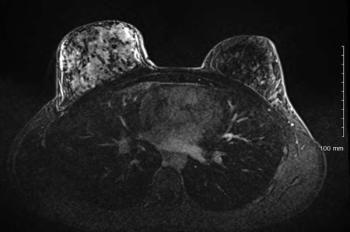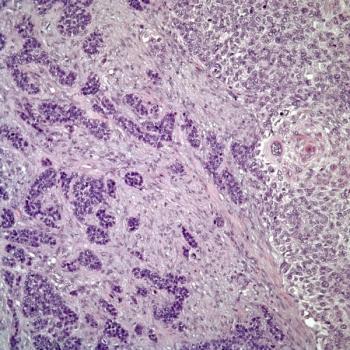
What Caused This Ulcerated Nodular Skin Lesion in a 30-Year-Old Man?
This lesion started as a rash 3 months prior to presentation and became an ulcerated open wound with some nodularity in and around it. What is your diagnosis?
A 30-year-old Caucasian man presented with a left-lower-extremity posterior thigh area skin lesion. The lesion had started as a rash 3 months prior, and in time turned into an ulcerated open wound with some nodularity in and around it. Initial treatments with topical measures, oral antibiotics, and wound care consolidation did not help. There was no history of fevers, chills, night sweats, or weight loss. Physical examination revealed no organomegaly or lymphadenopathy. A biopsy of the skin lesion revealed extensive involvement of skin and subcutaneous tissue by sheets of large atypical cells (A), including C-shaped and multinucleated cells (B) with strong positivity for CD30, CD2, CD45, granzyme B (C), and EMA (epithelial membrane antigen). Immunoperoxidase stains were negative for CD20, PAX5, ALK, pankeratin, S100, MART-1, CD34, and P63.
Based on the images shown, what is your diagnosis?
Newsletter
Stay up to date on recent advances in the multidisciplinary approach to cancer.


